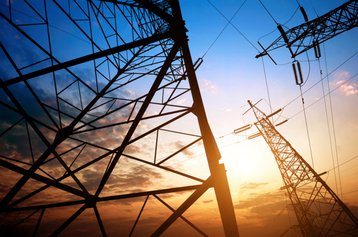A planned Amazon Web Services data center in Northern Virginia is raising continued objections, as it would require a new power line, consisting of 100-foot towers carrying 230,000-volt power lines, to be built through a small community descended from freed slaves.
Various groups have objected to the power lines, and the current route proposed by Dominion Power goes through the Carver Road neighborhood in Prince William County, Northern Virginia, where freed slaves bought land on which their descendants now live, according to report in The Washington Post.
A matter of power
Late last month the State Corporation Commission authorized Dominion Virginia Power to seize land through “eminent domain” - the right of a government to expropriate private property for public use - to build the lines needed to power a data center set on 38 acres of land. The facility is to be built by VAData, a subsidiary of Amazon.
Dominion originally planned to build either beside a freight railroad line or along Interstate 66, either above the ground or through a hybrid route with power lines buried at some points. But the State Corporation Commission rejected the Interstate 66 options, saying that if it was above the ground it would affect too many homes, and if it was below the ground it would cost too much at $167 million.
The commission and Dominion pursued the railroad option, which would cost an estimated $55 million, but residents in neighboring Somerset Crossing opposed the move.
Locals said that land values would drastically drop and the homeowners’ association quickly sprang into action, transferring its ownership of 55 acres of wetlands near the railroad line to the county government. With eminent domain only applicable to private property, it could not be seized.
Prince William County then denied Dominion permission to use the land in a unanimous vote by The Board of Supervisors. This, the Post reports, was in an effort to get Dominion to choose the more expensive hybrid I-66 route.
Instead, Dominion chose to go through the Carver Road neighborhood, with lines likely to pass directly through the site of the three-bedroom house of Nathan Grayson, a descendant of Livinia Blackburn Johnson, a freed slave whose relatives have lived on the land for the past 118 years or more. “Things are running over on top of us,” Grayson told the Post.
Homeowner groups said that they will lobby the state to reconsider that route, claiming that the high-voltage lines would pass dangerously close to homes and schools.
The US Army Corps of Engineers is reviewing the VAData project itself, as it sits on the site of the Civil War Battle of Buckland Mills and is surrounded by wetlands which the company plans to fill in.
But the Corps is not considering the impact of the route itself or the substation planned just outside of Haymarket.
That substation, and the various forms of the transmission route, have been subject to objection for some years, with the Protect Prince William County residents’ group forming to reject the Carver or railroad route. It believes that the cable should be buried, with Amazon paying for the extra cost.
In 2015, two local politicians, Delegate Richard Marshall and Senator Richard Black, wrote to Amazon CEO Jeff Bezos offering similar sentiments: “Please reject any plan to build your data center at its present location, unless the transmission lines are buried,” the pair wrote.


